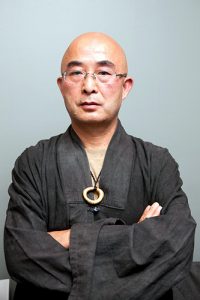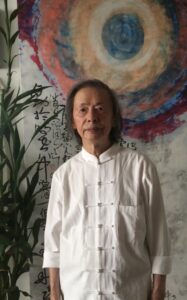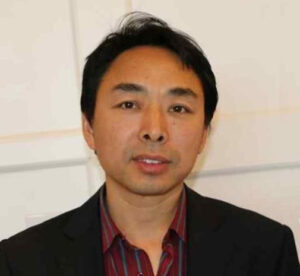Vigil for Liu Xiaobo

Please join PEN America, Independent Chinese PEN Center, and Human Rights in China for a vigil to remember the life and work of Liu Xiaobo on the 6th anniversary of his death in custody. Tributes, performances, and readings from Liao Yiwu, Huang Xiang, Yang Zili and others.
Liu Xiaobo (1955-2017) was a brilliant writer and committed activist. As president of the Independent Chinese PEN Center, he was a friend and compatriot for writers all over the world who struggle against tyranny using words as their sole weapon. In 2008 Liu Xiaobo was sentenced to 11 years in prison. After his arrest, PEN America honored Liu with the 2009 PEN/Barbara Goldsmith Freedom to Write Award. He was awarded—in absentia—with the 2010 Nobel Peace Prize.
Find us in Central Park just east of West Drive and just south of the 97th Street Transverse (the blue marker in the map below).
Participants
 Liao Yiwu is a writer and musician who was born in Sichuan province, China. He was mostly apolitical until the 1989 Tiananmen Square protests. After June 4, he wrote a poem about the brutal crackdown, and was imprisoned for four years. After his release, he became interested in documenting the oral histories of people in unconventional spaces and on the margins of society, often taking liberties to reimagine these conversations. He documented stories from survivors of the 2008 Sichuan earthquake, signed the pro-democracy treatise Charter 08, and advocated for the release from detention of Nobel Peace Prize winner Liu Xiaobo and his wife Liu Xia.
Liao Yiwu is a writer and musician who was born in Sichuan province, China. He was mostly apolitical until the 1989 Tiananmen Square protests. After June 4, he wrote a poem about the brutal crackdown, and was imprisoned for four years. After his release, he became interested in documenting the oral histories of people in unconventional spaces and on the margins of society, often taking liberties to reimagine these conversations. He documented stories from survivors of the 2008 Sichuan earthquake, signed the pro-democracy treatise Charter 08, and advocated for the release from detention of Nobel Peace Prize winner Liu Xiaobo and his wife Liu Xia.
The Chinese government has banned Liao’s writing and denied him exit visas. In 2011, he fled China and has since lived in exile in Berlin. He has published multiple books, including The Corpse Walker, a series of interviews; For a Song and a Hundred Songs, about his experience in prison; Wuhan, a fictionalized narrative of the pandemic; and others. He produced the documentary film Liu Xiaobo in Formosa, about a memorial sculpture to Liu Xiaobo in Taiwan. His latest novel is Love in the Times of Mao Zedong, set during the Cultural Revolution.
 Huang Xiang, a poet from Hunan Province, China, was born in 1941 and began publishing his work at age 17. He became the youngest member of the Chinese Writers Association (a state-run literary organization) after being admitted in 1958, but was later expelled for his desire to write freely and truthfully. From 1959 to 1995, he was imprisoned a total six times (for 12 years total) for his determined pursuit of freedom of expression and human rights advocacy. Huang Xiang is a pioneer of the human rights movement in China and was one of the first to post poems on the Democracy Wall in Beijing in 1978. Huang Xiang is considered, in contemporary Chinese literature, one of the earliest and most productive liberal poets and writers in terms of “underground literature”. He left China in1997 and in 2004 became the first guest writer at the City of Asylum in Pittsburgh, where he resided from 2004 to 2006 before coming to New York.
Huang Xiang, a poet from Hunan Province, China, was born in 1941 and began publishing his work at age 17. He became the youngest member of the Chinese Writers Association (a state-run literary organization) after being admitted in 1958, but was later expelled for his desire to write freely and truthfully. From 1959 to 1995, he was imprisoned a total six times (for 12 years total) for his determined pursuit of freedom of expression and human rights advocacy. Huang Xiang is a pioneer of the human rights movement in China and was one of the first to post poems on the Democracy Wall in Beijing in 1978. Huang Xiang is considered, in contemporary Chinese literature, one of the earliest and most productive liberal poets and writers in terms of “underground literature”. He left China in1997 and in 2004 became the first guest writer at the City of Asylum in Pittsburgh, where he resided from 2004 to 2006 before coming to New York.
His most recent publications are Pittsburgh Dream Nest Jotting, Poetry Collection of Huang Xiang, and Blue Planet and Eternal Beauty. English collections of his work include A Lifetime is a Promise to Keep: Poems of Huang Xiang (translator Michelle Yeh) published by the University of California Press in 2008 and The Chinese Dark Poet: Huang Xiang and His Colorful World translated and edited by Fu Zhengming. Huang Xiang’s work is still banned in mainland China.

Yang Zili is the secretary-general of the Independent Chinese PEN Center and the deputy editor-in-chief of the Chinese-language outlet “Yi Bao”. He was born in Hebei Province in 1971. In 1989, he studied in the Department of Mechanics of Xi’an Jiaotong University and in 1998 obtained a master’s degree in science from Peking University. He later worked for an IT company. In March 2001, Yang was arrested with three others for founding a pro-democracy website and participating in the student association “New Youth Study Group” to debate poliical and social reform in China. He was found guilty of “subversion of state power” and sentenced to eight years in prison. After being released from prison in March 2009, Yang worked as a researcher at Beijing Transition Social Economic Institute, conducting research and advocacy on migrant workers rights. At the same time, he was involved in activism to defend detained or imprisoned human rights defenders. In 2018, he was awarded the Reagan-Fassel Democracy Fellowship and left for the United States, where he is based.






